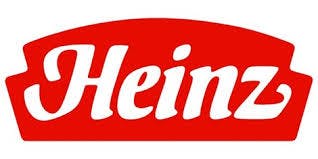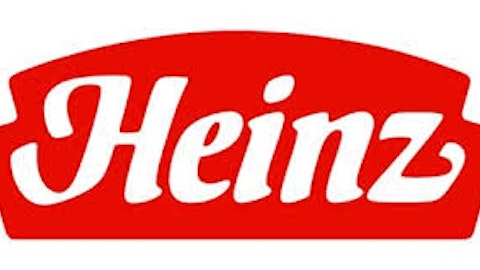The recent announcement that Berkshire Hathaway Inc. (NYSE:BRK.B) is acquiring food processor H.J. Heinz Company (NYSE:HNZ) seemed to surprise the market with Heinz stock jumping about 20% on the news. This buyout has Berkshire and private equity firm 3G Capital paying $72.50 per share with Berkshire reportedly putting up $12.12 billion in return for half of the equity and $8 billion of 9% preferred stock.
I was also surprised by the deal for Heinz but in a different way. This may not be a good deal for Berkshire and its implications may be troubling. Here are two main reasons for my concern:

There seems to be little evidence that Berkshire is getting a bargain at the $72.50 per share offer price. Beside the fact that it’s a startling 19% above the company’s previous all-time high, if one uses an expected Heinz fiscal year 2013 result of $11.6 billion in revenue and adjusted cash earnings of $1.1 billion with a 9.5% profit margin, the deal price comes in at a 20x multiple.
Compared to the past, this multiple exceeds the company’s highest valuation point. At its 2008 high, Heinz traded with an 18x multiple based on a market cap of $16.7 billion and revenues of $10.1 billion with cash earnings at around $916 million.
It also doesn’t seem like a great deal relative to some peers. Two other well-known consumer names that can also be found in the grocery aisles are iconic chocolate maker The Hershey Company (NYSE:HSY) and soft drink leader The Coca-Cola Company (NYSE:KO).
Berkshire Hathaway should be well acquainted with these firms. The company has an interest in the confection industry through owning See’s Candies since 1972 and taking a major part in the Mars purchase of Wrigley in 2008. Coca-Cola has also been a sizable long-term Berkshire equity holding.
Hershey, the biggest chocolate producer in North America, has more than doubled its reported net income since 2008 and currently sells for around a 21x multiple. With roughly $7.0 billion in sales and average cash earnings of $868 million, it sports an attractive 12.4% profit margin. Analysts expect earnings-per-share growth of 12.3% in 2013 and another 9.6% in 2014 for the company.
Coca-Cola, the world’s largest beverage company, has seen its net income rise over 50% since 2008 and is priced at a 19x multiple with revenues of $50.7 billion, profits of $8.7 billion and a superior 17.3% margin. Its earnings-per-share growth is estimated to be 6.5% in 2013 and 8.9% the following year.
These are clearly exceptional companies with their high profit margins and outstanding income growth. They both have dominant, maybe unassailable, market positions and are expected to continue core business expansion in a tough economic environment. Given these attributes they probably deserve their premium multiples.
In relation to these peers, Heinz has had lagging net income growth, 23% since 2008, and a noticeably lower profit margin. Also taking into consideration that some of its recent gains were due to restructuring , a 20x deal multiple may seem overly optimistic.
2. The Heinz deal suggests Berkshire might be becoming “un-investable”
The Heinz deal might imply that Berkshire is going further out on the risk spectrum than ever before. This transaction looks highly leveraged. It appears that Berkshire and 3G Capital are putting in roughly $9 billion of equity and relying on about $14 billion in debt (including the 9% preferred stock) to finance the purchase. The additional interest burden of the added debt looks to be around $1 billion or a significant 80% of the expected annual cash earnings of Heinz.
I’m guessing that Berkshire has tried to reduce its risk with a buyback provision included with the preferred. However, that infers Heinz will be able to refinance the $8 billion in a timely manner when, as I expect, the company will also be undertaking a substantial restructuring under 3G Capital’s guidance. Given the history of 1980’s consumer product leveraged buyouts like RJR Nabisco and Beatrice Foods, it is hard to deny that deals comprised of a generous offer, meaningful leverage and a restructuring involve a significant amount of risk.
Berkshire’s increased partiality toward “sweetheart” preferred stock deals is also concerning. Besides the Heinz preferred, Berkshire has purchased $5 billion of Bank of America 6% preferreds that also included 700 million shares worth of around par warrants in 2011. In 2008, $3 billion in General Electric 10% preferred shares were purchased that included a 10% buyout premium. These were later redeemed in 2011. Berkshire also undertook attractive preferred share deals with Goldman Sachs 10% paper (that was also redeemed in 2011) and $3 billion of Dow Chemical 8.5% stock.
These purchases are not necessarily a negative in themselves. But in assessing Berkshire’s future operations their continued availability cannot be counted on without a concurrent assumption that these deals will also involve increased risk. I think the Heinz transaction is an example.
However, Berkshire being un-investable is not related to these factors specifically but more to their influence on calculating the company’s “discount factor.” Conglomerates, of which Berkshire Hathaway may be the most varied ever, usually have their intrinsic business value discounted. This discount is justified by the additional administrative control necessary to oversee the disparate businesses held. The potential for further acquisitions to spur growth and the possible internal unease at future divestitures of lagging subsidiaries are additional concerns that usually warrant a discount.
As Berkshire brought some large dissimilar businesses into its fold, such as the BNSF railroad and chemical company Lubrizol, the discount factor appraisal was made more difficult but not unmanageable. Though, as the Heinz deal might suggest, if Berkshire is pushing out on the risk spectrum and relying more on unconventional preferred share deals, ascertaining a reasonable discount is getting close to being impossible. Without being able to discount Berkshire intrinsic value adequately, its stock is just about uninvestable.
I’m sure investors will flock to Berkshire Hathaway for a variety of reasons but the Heinz deal might make the stock far less attractive. Shareholders and potential stock buyers might want to consider my concern and satisfy for themselves that they are truly getting the value they believe they are paying for.
The article Surprising Concern About Berkshire’s Heinz Deal originally appeared on Fool.com and is written by Bob Chandler.
Copyright © 1995 – 2013 The Motley Fool, LLC. All rights reserved. The Motley Fool has a disclosure policy.





